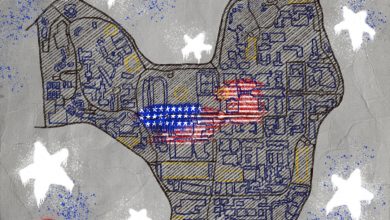The Road to Recovery from an Eating Disorder

Illustration by Maddy Pease.
Trigger Warning: This article may be triggering for people struggling with and/or recovering from eating disorders, disordered eating, and related body image issues.
Recovery is a hard process. Little did I know, it is a constant everyday battle. I never realized my eating habits would be considered a disorder. I just thought I was eating less to lose weight, everyone did that. At the height of my eating disorder, I was 80 pounds, which I thought was normal for someone who is 4’11. Skipping dinner became a regular occurrence: a habit. It is sometimes still a bad habit I struggle with. I thought eating 500 calories a day was the only way I would remain thin and continue to lose weight. I woke up starving with excruciating hunger pains, a pounding headache, no energy to function normally and obsessively looked at myself in the mirror. The first thought that came to my mind when I woke up was food. My whole life revolved around food. And sometimes it still does.
Some people have those “a-ha” moments, for me it was more of a slow realization that I needed to change because I was trapped in this vicious cycle. When my friends and family grew worried, I would eat in front of them, only to immediately feel guilty and finally throw up. Over time, blood would come out when I purged, and my teeth have become so sensitive from the acidity and loss of enamel that it is now agonizing to even drink water. My mother would inquire what I ate, but I would simply brush it off. I found it easier to lie to her than to tell her the truth.
After being told to seek intensive inpatient treatment by multiple sources, I realized I have to make the decision to choose my health over being “skinny.” At the time, being skinny was the most important thing to me. Even though physically I would feel like hell after being so malnourished, mentally I would feel accomplished. It’s this kind of unhealthy mindset that perpetuates a dangerous and sometimes life-threatening cycle. Waking up in the morning and seeing my hip bones and ribs protrude made me feel accomplished.
Though I have made the decision to recover, it is still an everyday battle. I still think about everything I eat, and with it come my negative thoughts. However, now I think about the long-term goal: my health. One of the hardest aspects of recovering from an eating disorder is the fact that these thoughts don’t go away overnight. Admittedly some days are better than others, and that’s okay. You slowly realize that you are human, not some cookie-cutter ideal of “perfection.” I still compare myself to every other girl I see. However, I am gradually learning to realize that every single body is unique and beautiful. Despite what you might think, you will not automatically become happy once you “look like her” or “reach your goal weight.” Trust me, I know. I was 80 pounds and still thought I needed to lose more weight.
To all the other young women and men currently struggling with or recovering from an eating disorder, know that it is natural to eat food. Your body needs nourishment to stay alive and function. It is natural for your weight to fluctuate throughout the day, and it is natural to have a food baby after you eat. Truthfully, throughout my 20 years of life I have never been 100% satisfied with my body. However, now I’m learning to accept it. I am terrified to begin treatment during the summer, but I know it will benefit my mental and physical well-being.
You are beautiful regardless of your so-called “imperfections” and guess what? The people who truly love you, will love you no matter what. Food isn’t something you have to be afraid of. I thought I was controlling the food, but in reality the food was controlling my life and that’s no way to live. Once you break free of that mindset something amazing happens. You become happier day by day and those toxic thoughts will soon fade away.
If you or anyone you know is currently dealing with an eating disorder/disordered eating behaviors and thoughts please call the National Eating Disorder Association (NEDA) at 800-931-2237. You are not alone in this fight and you CAN beat this.




